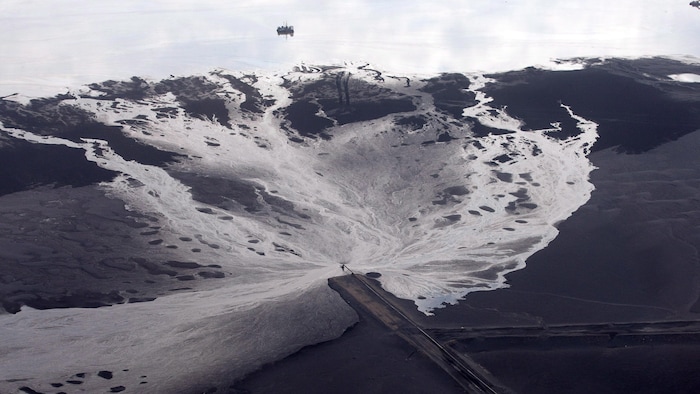Open in full screen mode The two Indigenous nations are concerned about naphthenic acids, compounds resulting from the breakdown of petrochemicals and present in tar sands tailings ponds. The Canadian Press Two Alberta First Nations have asked the federal government to examine whether naphthenic acid, a compound found in tar sands tailings pond water and known to have harmful effects on fish, should be classified as toxic. If Ottawa agrees, it could lead to a study on the impacts of tar sands development on human health. Such a study has been a long-standing goal of the first two First Nations behind the request, the Athabasca Chipewyan First Nation and the Mikisew Cree Nation. There are major scientific gaps when it comes to human health, says Bronwyn Roe, lawyer for the Athabasca Chipewyan First Nation. Both Indigenous nations concerned about naphthenic acids, compounds resulting from the breakdown of petrochemicals and present in tar sands tailings ponds. Studies have shown that these compounds are toxic to fish, affect hormonal functions in humans and other mammals, and may be carcinogenic. Under federal laws, fish have more rights than humans, says the Mikisew Cree Nation in a letter to federal Environment Minister Steven Guilbeault on March 11 . The Government of Canada should not wait for new research to make this assessment. In January, Environment and Climate Change Canada and Health Canada released a report (New window) concluding that naphthenic acids should not be classified as toxic. However, this report only focused on commercially produced versions of this substance, not those found in oil sands tailings ponds. Loading ELSELL ON INFO: Jacques Delisle affair: no judicial error, concludes the report submitted to the ministerLoading in progress ELSIDE ON INFO: Jacques affair Delisle: no judicial error, concludes the report submitted to the minister Naphthenic acids [from oil sands] differ from commercial naphthenic acids in terms of source, composition, properties and use, the report notes. The government could also subject the industry to new regulations and limit the discharge of treated wastewater from tailings ponds. Kendall Dilling, president of New Pathways Alliance, a group of Canada's major oil sands companies, says research into naphthenic acids is underway. We respect leaders' desire to seek information for the health of their community, he said by email. We will continue to cooperate with the government if further research is carried out in response to this request.
Jacques Delisle affair: no judicial error, concludes the report submitted to the minister
Jacques Delisle affair: no judicial error, concludes the report submitted to the minister
Alberta First Nations concerned about tar sands residue

